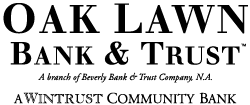What Is a Recession (And How Could One Affect Your Finances)?
What Is a Recession (And How Could One Affect Your Finances)?
A recession happens whenever the U.S. economy experiences two back-to-back quarters of negative growth.1 That’s the definition that many economists, politicians, and financial journalists share whenever they’re talking about recessions.
How can a recession affect you?
Recessions can last as little as a few months, but they can also last longer — and that’s when things can become difficult for individuals, families, and businesses alike.
Your career and salary
One of the most common effects of a recession is a decrease in corporate revenue. To offset these losses, many companies will implement salary cuts or hiring freezes.
Other companies may delay promotions or freeze pay raises during a recession. Although it may be frustrating to wait longer for a raise or promotion, remember that these decisions are out of your control. After the recession, the company may be able to offer raises and promotions again.
If your salary has been cut or a promotion has been delayed, you may need to tighten your budget and postpone some spending or plans so you can maintain your standard of living.
For those who unluckily lose their job, finding an equal or similar role may be difficult in a tightened labor market. But it’s not impossible. It may just take a little longer than in boom periods when companies are more aggressively hiring.
If you’re apprehensive about graduating during a recession, here is some guidance for that specific scenario.
Your savings and mortgage
A recession can also affect bank accounts, especially when the Federal Reserve Bank raises the interest rate to combat issues like inflation. Or when they drop those same rates to make it easier for people and businesses to borrow. Regular interest rate hikes began happening in America in 2022, as legislators sought to tackle the rising cost of living.
With higher interest rates, you might see an increase in your rate of return in your savings accounts, but the impact is less positive for mortgage holders. If you have a mortgage with a variable interest rate, your regular repayments may rise as a result of rising interest rates. That might mean you need to tap into existing savings — or credit sources — to continue to service the mortgage.
What could a recession mean for credit scores?
During the Great Recession of 2008 – 2009, credit scores for 50 million people declined by more than 20 points, according to FICO data.2 While your credit score is not determined by the state of the economy, it can have an indirect impact on your credit score in several ways.
For example, if you lose your job or have your hours reduced during a recession, you may have trouble making your monthly debt payments on time. This late payment could then be reported to the credit bureaus and show up on your credit report, which would negatively impact your credit score.
How to ride out a recession
You can take a number of steps to ready yourself for a recession — and to ride it out while in one, including:
- Delaying big purchases, like homes or cars
- Paying down debt
- Finding ways to cut spending on unessential expenses
- Allocating more income to savings
- Holding off on a job switch to maintain a steady income
Consider adopting the following strategies to get recession-ready:
1. Network, and update your resume
Stay focused on performing well in your current role. But have a plan B too. Be proactive by networking with colleagues and professional contacts. Update your resume and LinkedIn profile, just in case you find yourself looking for a new job.
2. Closely manage your finances
Analyze your income and expenditure more often than you normally do. Find savings where necessary. This may include cutting back on unnecessary luxuries, eating out less often, and reducing your grocery bill. Consider paying credit card balances too. This becomes more important during recessions, when interest rates may continue to increase the cost of repayments.
3. Review any investments
During a recession, markets tend to be more volatile. It is important to take a careful and strategic approach to managing your investments during a recession. One key strategy is to focus on long-term investments. It might be tempting to follow every movement of the markets. But it’s more important to remember markets have historically always recovered, over time.
The same is true for the U.S. economy. Strong recoveries often follow recessions. Companies become resurgent. New businesses open. More jobs are created. And families and individuals become fitter financially.
For a bank that will give you the financial support you need in any economic scenario, please visit us online, or in person.
1. David Rodeck, “What Is A Recession?,” updated July 12, 2022, https://www.forbes.com/advisor/investing/what-is-a-recession.
2. Rachel Bell, “Recession causes FICO® Score swings,” October 28, 2011, https://www.fico.com/blogs/recession-causes-ficor-score-swings.





